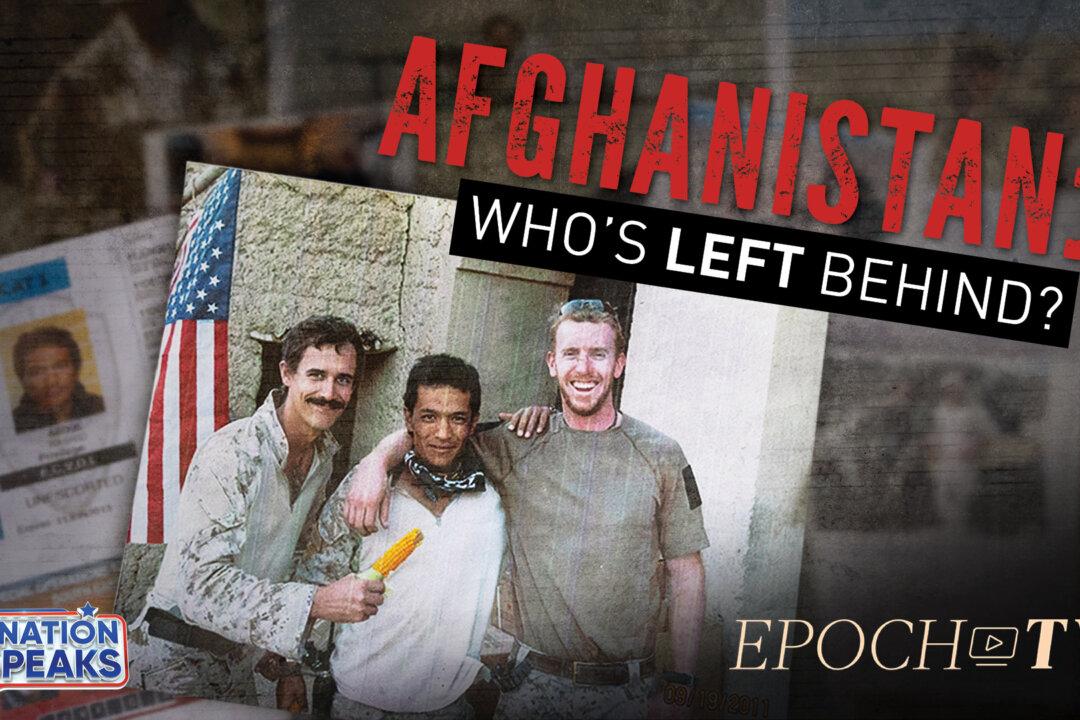Afghan Interpreters
Host Cindy Drukier begins the episode by explaining that the Afghanistan evacuation did not go as planned but rather fell into chaos. As a result, there are concerns as to whether all of the U.S. citizens will be able to be evacuated and if the Afghan nationals who were promised protection will all be rescued, especially the women and children.Ahmadullah Sediqi, a former interpreter, expresses the concerns of many Afghans like himself and discusses his current work as an ambassador for the Special Immigration Visa program called No One Left Behind. Sediqi speaks about the four years he served in Afghanistan as an interpreter and his move to the United States in 2014.
The interpreters are liaisons between the Americans serving in Afghanistan and the Afghan people. They and their families are promised visas to come to the United States.
Sediqi began as an English instructor and then joined the U.S. forces as an interpreter. Many interpreters are trying to get their visas, but it is difficult because there is a limited number. He explains how the Taliban does not believe in democracy or any type of women empowerment, and they do not want anyone to get out, saying they will catch and kill those trying to leave.
Another factor complicating things is that the Taliban captured a biometric database. As a result, interpreters and their families are being killed on a regular basis. Many have gone into hiding. Sediqi’s organization works to get applications expedited. He explains that those who are in danger should be moved to U.S. territories and once their paperwork is complete, brought to America. He states, “It’s our moral and legal duty to help those who have served alongside U.S. forces.”
Comparing the Fall of Saigon to the Situation in Afghanistan
Ronald Yates, a former war correspondent for the Chicago Tribune, was in Vietnam when it fell to the communists in 1975. He compares that situation with the current one in Afghanistan—both the similarities and differences.Yates has been present at and reported on several key events, such as the end of the Soviet Union’s occupation in 1987 and the Tiananmen Square massacre, to name a few. He recounts what he saw during the evacuation of Vietnam. A plane was sent to primarily get the women and children out, but members of the South Vietnamese army were so frightened of the North Vietnam takeover that they stormed the plane and got on board. Some were even hanging on to the stairs at the back of the plane when it lifted off, and they fell as the plane gained altitude—eerily similar to scenes in Afghanistan. Yates describes it as a harrowing, touch-and-go situation. In Saigon, the evacuation points had been taken over by the enemy so that left them wandering around Saigon trying to find a way out. They finally found a military bus that took them to safety.
Yates explains that many Afghan citizens are in the same position that he was in 1975—crowding airports and desperately trying to find a way out. He states that he believes Americans will be allowed to leave, but Afghans will most likely have to sneak out of the country to neighboring areas for safety.
Song for Veterans
Veteran and singer-songwriter Takosha Swan wrote a song called “The Veteran Anthem” for her fellow veterans. Swan served in the Army and National Guard in the Iraq War and during Hurricane Katrina. She was appointed to the Georgia Department of Veteran service board and is vice chair. The board focuses on providing services and mental health to veterans.Her purpose in writing songs is to give support and hope to her fellow servicemen and their families. She assures them of their value, purpose, and strength. She says “The Veteran Anthem” can provide comfort and direction to veterans and family members who are struggling. It reminds them that they are still needed after their military service, and they will never be forgotten. She is working to make this song the formal national anthem for veterans of the U.S. military.
Follow Epoch TV on social media:





